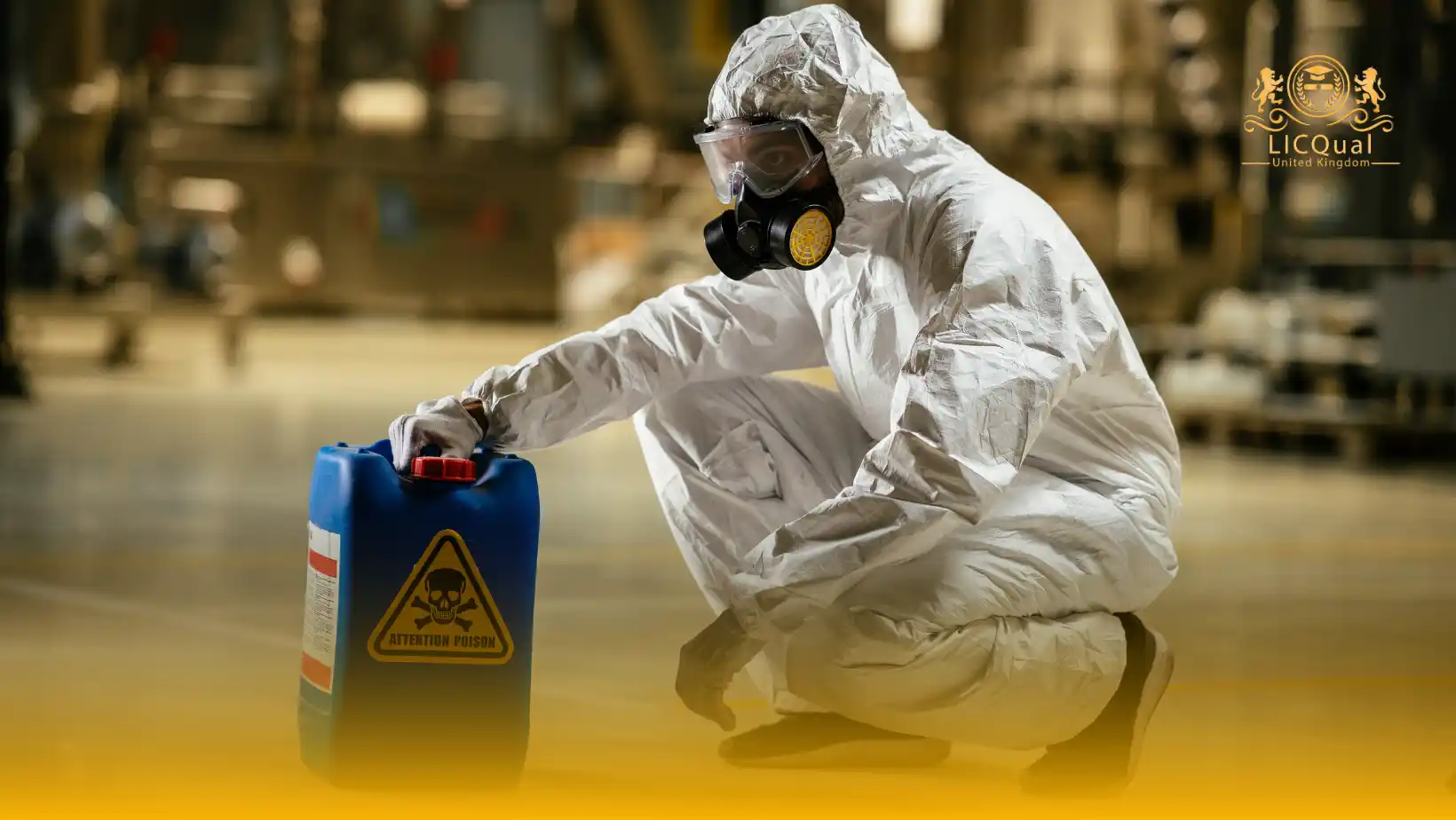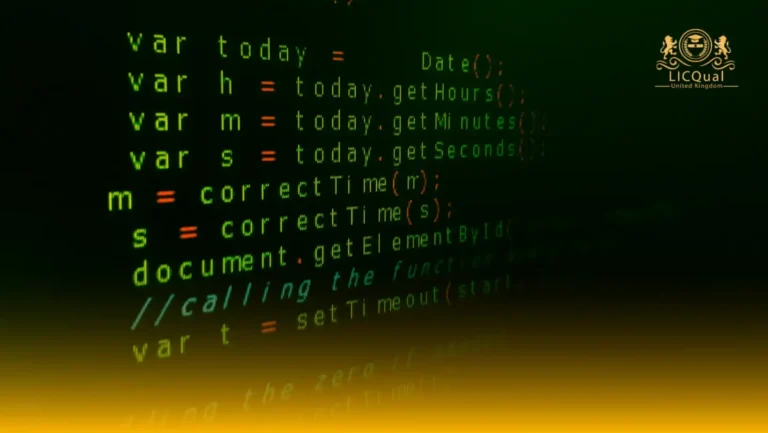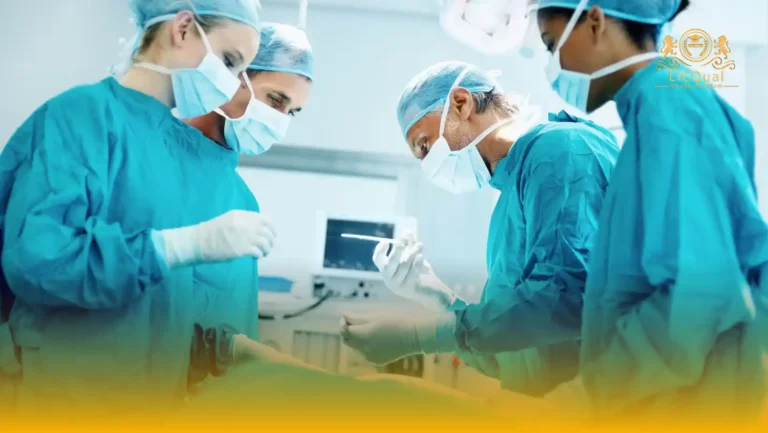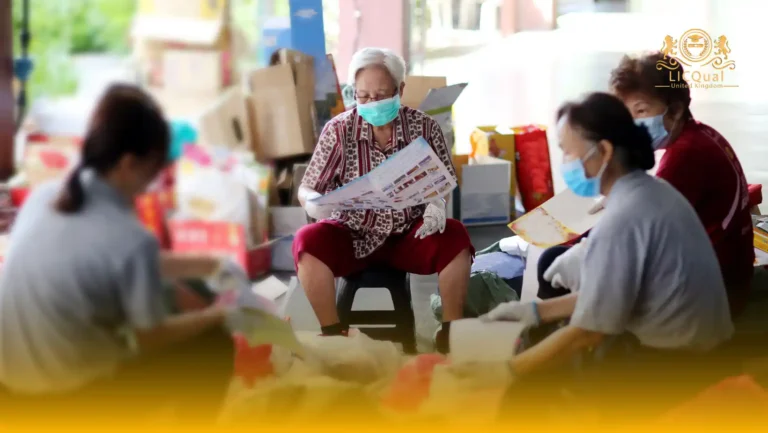The LICQual Level 3 Award in Radiation Safety is a comprehensive and internationally recognized qualification designed for individuals who work in environments where radiation exposure is a concern. Whether you’re working in healthcare, nuclear energy, research, or industrial sectors, this course provides the essential knowledge and practical skills to ensure the safe handling, monitoring, and management of radiation hazards. With a strong emphasis on health and safety, regulatory compliance, and best practices, this course equips participants to manage radiation risks effectively and confidently.
Radiation safety is critical in numerous industries, and this course offers the expertise needed to safeguard workers, the public, and the environment from radiation hazards. The Level 3 Award in Radiation Safety is ideal for those seeking to deepen their understanding of radiation protection and fulfill the requirements of their roles while staying compliant with international standards and legislation. Upon successful completion, learners will be proficient in assessing risks, implementing protective measures, and responding to emergencies in radiation-prone environments.
The LICQual Level 3 Award in Radiation Safety covers a broad range of topics designed to provide participants with a thorough understanding of radiation safety principles. The course includes key areas such as radiation types, sources of radiation, biological effects, protective measures, and the importance of regulatory frameworks. Learners will gain a deep insight into the safe use of radiation in various settings, including healthcare facilities, research laboratories, and nuclear power plants.
Throughout the LICQual Level 3 Award in Radiation Safety, participants will explore the principles of radiation protection, the use of personal protective equipment (PPE), monitoring and detection methods, and how to ensure compliance with safety standards. The course also delves into emergency procedures for radiation incidents, including decontamination processes and managing exposure risks. By emphasizing both theoretical knowledge and practical application, this qualification enables learners to handle radiation hazards in line with current safety regulations and best practices.
Ideal for radiation safety officers, healthcare professionals, industrial workers, and anyone involved in environments where radiation exposure is present, this qualification provides the necessary skills to safeguard personnel and ensure public safety. Furthermore, the course is aligned with international standards, ensuring that learners are well-equipped to meet the regulatory requirements of their specific industry.
Upon successful completion of the LICQual Level 3 Award in Radiation Safety, learners will be fully prepared to implement radiation protection protocols, manage risks, and respond effectively to radiation-related emergencies, making them a valuable asset to any organization that deals with radiation.
Course Overview
Qualification Title
LICQual Level 3 Award in Radiation Safety
Total Units
6
Total Credits
6
GLH
18
Qualification #
LICQ2200404
Qualification Specification
To enroll in the LICQual Level 3 Award in Radiation Safety applicants must meet the following criteria:
|
Qualification# |
Unit Title |
Credits |
GLH |
|---|---|---|---|
|
LICQ2200404-1 |
Introduction to Radiation and Its Types |
1 |
3 |
|
LICQ2200404-2 |
Health Effects of Radiation Exposure |
1 |
3 |
|
LICQ2200404-3 |
Radiation Protection and Control Measures |
1 |
3 |
|
LICQ2200404-4 |
Radiation Monitoring and Measurement Techniques |
1 |
3 |
|
LICQ2200404-5 |
Emergency Procedures and Incident Management |
1 |
3 |
|
LICQ2200404-6 |
Regulatory Framework for Radiation Safety |
1 |
3 |
By the end of this course, learners will be able to:
- Introduction to Radiation and Its Types
- Understand the different types of radiation (ionizing and non-ionizing) and their characteristics.
- Identify common sources of radiation in various environments and industries.
- Health Effects of Radiation Exposure
- Recognize the biological effects of radiation exposure on human health, including short-term and long-term risks.
- Understand the factors that influence radiation exposure and the potential for harm to workers, the public, and the environment.
- Radiation Protection and Control Measures
- Implement effective radiation protection strategies, including the use of shielding, time management, and distance control.
- Understand the importance of personal protective equipment (PPE) and its role in minimizing radiation exposure.
- Radiation Monitoring and Measurement Techniques
- Learn to use radiation detection equipment and monitoring techniques to assess radiation levels in the workplace.
- Understand how to interpret radiation measurements and ensure compliance with safety limits.
- Emergency Procedures and Incident Management
- Develop the skills to respond effectively to radiation emergencies, including contamination and exposure incidents.
- Understand emergency procedures such as evacuation, decontamination, and first aid in the event of radiation exposure.
- Regulatory Framework for Radiation Safety
- Understand the key legal and regulatory requirements governing radiation safety, including international, national, and industry-specific regulations.
- Recognize the responsibilities of employers and employees in adhering to radiation safety standards and ensuring a safe working environment.
This diploma is ideal for:
- Professionals working in industries where radiation exposure is a potential risk, such as healthcare, nuclear energy, research, and industrial sectors.
- Radiation safety officers looking to formalize and expand their expertise in radiation protection and safety management.
- Environmental health and safety managers responsible for ensuring safe working conditions in environments with radiation hazards.
- Individuals seeking to advance their careers in radiation safety, risk management, and compliance.
- Workers in healthcare settings, laboratories, or nuclear plants who handle radioactive materials or work in radiation-prone environments.
- Supervisors and managers looking to ensure that their teams adhere to radiation safety protocols and regulatory requirements.
- Those interested in understanding the health effects of radiation exposure and implementing effective control measures.
- Individuals aiming to meet regulatory and safety requirements for radiation work in compliance with international standards.
Assessment and Verification
All units within this qualification are subject to internal assessment by the approved centre and external verification by LICQual. The qualification follows a criterion-referenced assessment approach, ensuring that learners meet all specified learning outcomes.
To achieve a ‘Pass’ in any unit, learners must provide valid, sufficient, and authentic evidence demonstrating their attainment of all learning outcomes and compliance with the prescribed assessment criteria. The Assessor is responsible for evaluating the evidence and determining whether the learner has successfully met the required standards.
Assessors must maintain a clear and comprehensive audit trail, documenting the basis for their assessment decisions to ensure transparency, consistency, and compliance with quality assurance requirements.







